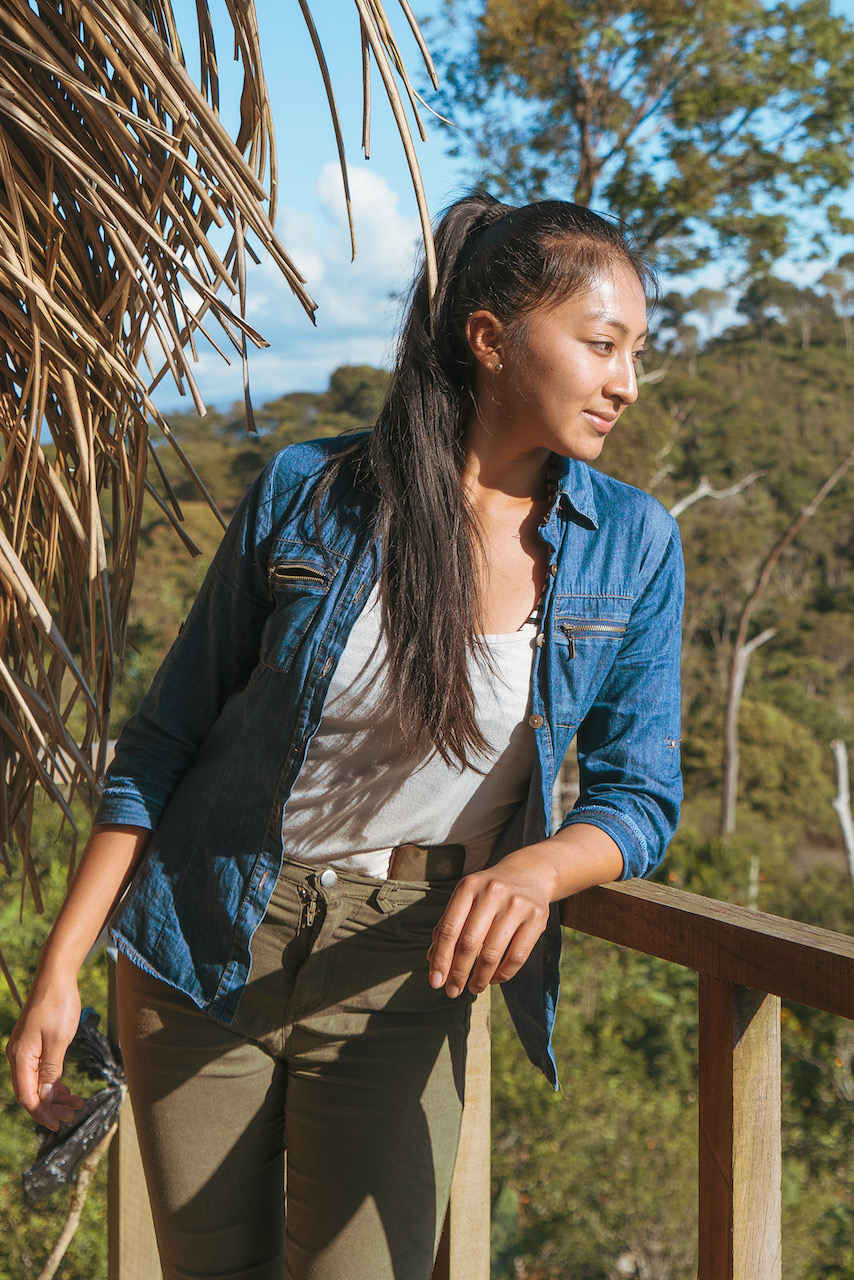
Coffee Is Also A Life
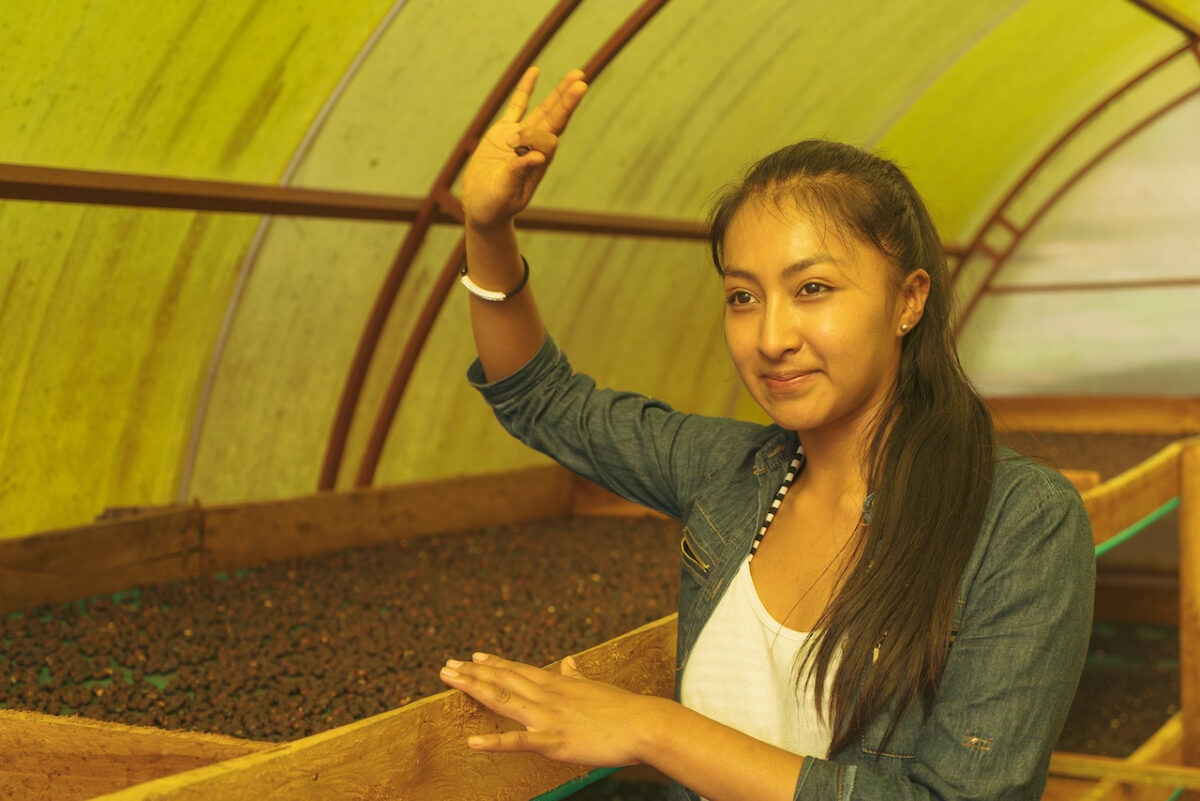
While working on her mother’s farm, Nassia Salvador Palacios is the village leader to revitalize her village of Taypiplaya, where many coffee producers reside. After graduating university, she decided to come back to her hometown, where she’s the thoroughbred between her grandfather, who founded Taypiplaya in the 1950s by cultivating the mountains, and her mother, who was the mayor of Taypiplaya. We decided to hear her story.
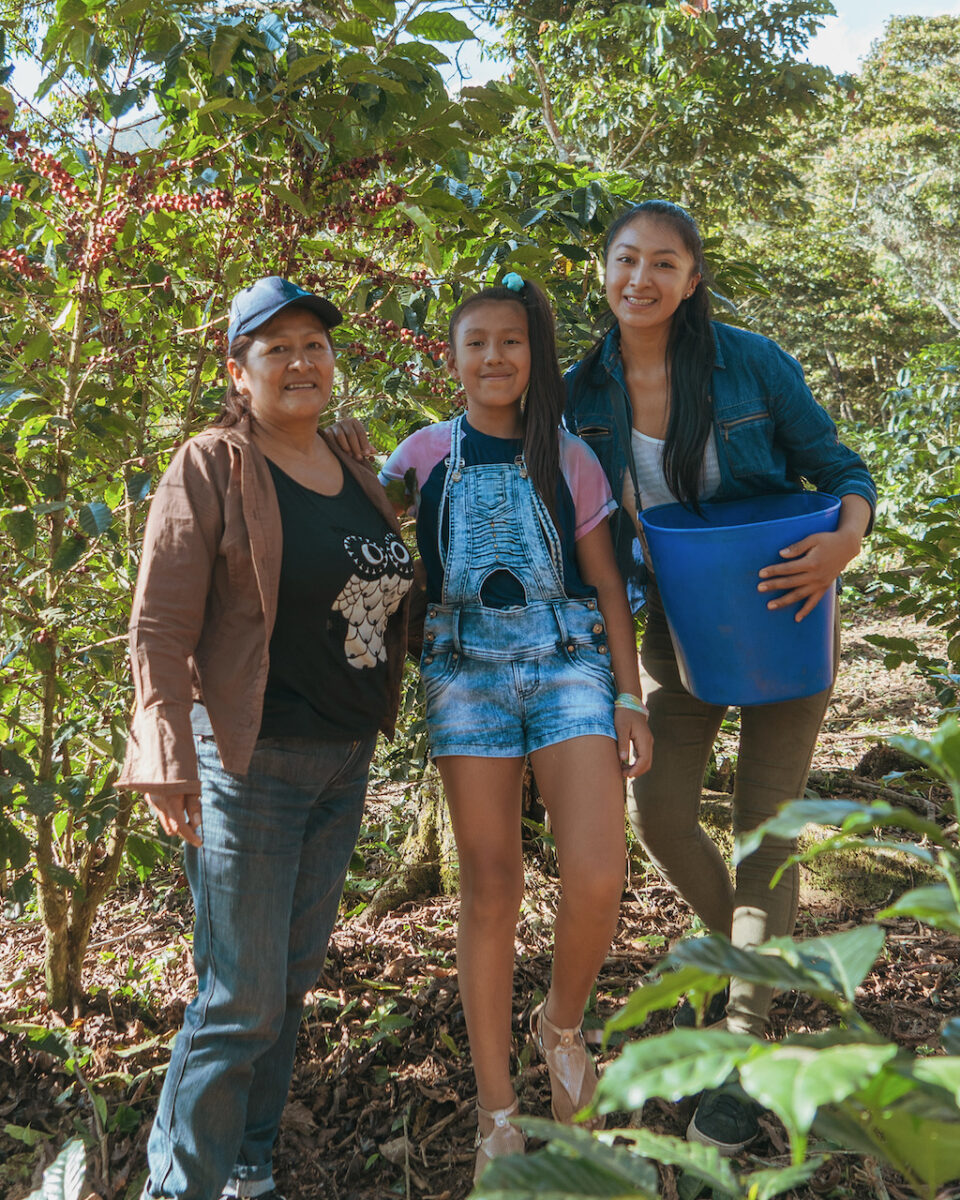
Contradictions helped me realize my calling
The Palacios family started producing coffee in Taypiplaya around 20 years ago. When she became an elementary school student, she left her parents to go to her school in La Paz, the de facto capital of Bolivia. During summer and winter vacation, she would come home to help her family.
“Coming back home always felt like going on a camping trip. I used to play a lot like a monkey. I’d slide down the slope of a mountain that I covered in banana peels and used the mountain near the home as my playground.”
Bolivia is rich with natural resources such as oil and natural gases. She had been going to university for chemical engineering to pursue a career as an engineer when she suddenly realized her calling.
“A cup of coffee from a coffee shop in La Paz sells for $3.50 to $4.50. And despite how much coffee my grandfather grew, he was paid little. It also felt contradicting that I’d only seen my grandfather drink instant coffee.”
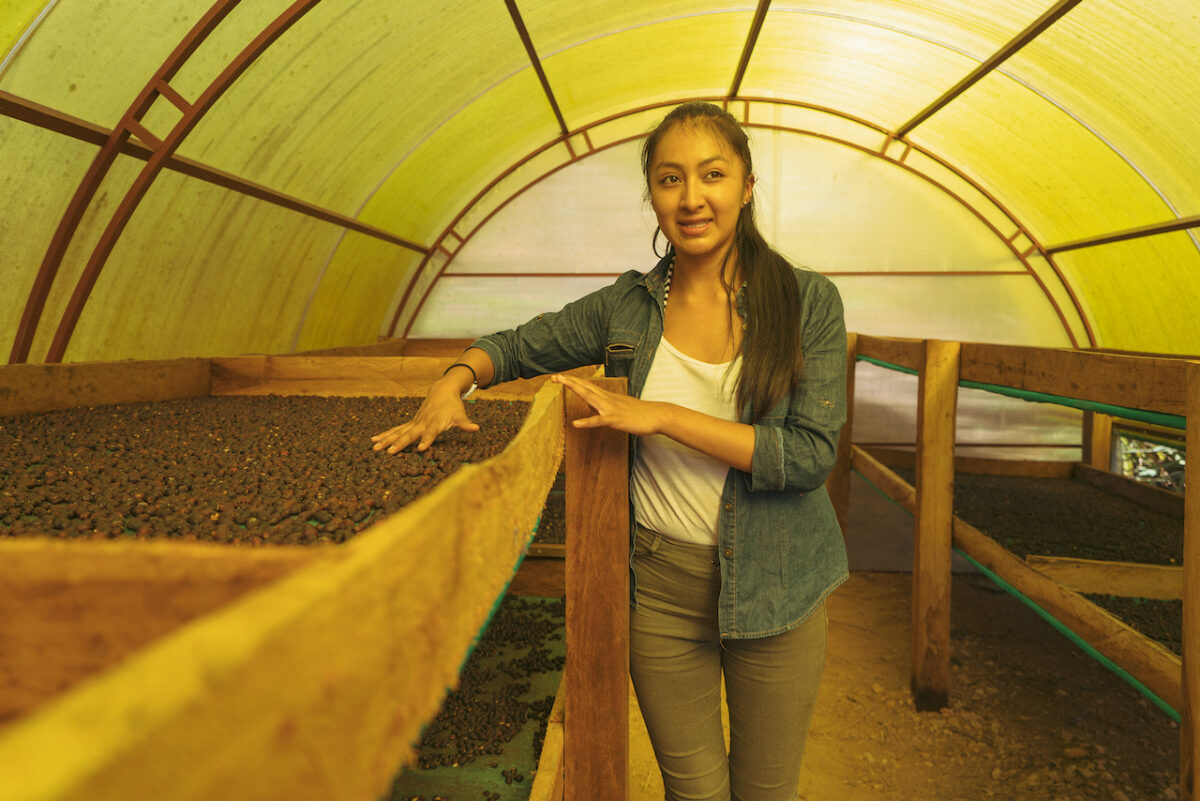
She suddenly felt that the people working on the farm deserved to have comfortable lives for creating high quality coffee. Nassia held on to those feelings and decided to come back to her hometown 3 years ago to be involved in the family business of producing coffee. While having hands-on learning experience about coffee production and coffee refining, she realized she was able to utilize her studies on chemical engineering at university, which made her even more interested in the business.
“In university, I learned about measuring temperature, pH, and sugar content and how to control them in order to create something better. The approach was the same for coffee. For example, adjusting drying time for coffee cherries by checking humidity and modifying the amount of water to coffee trees depending on rain levels helped stabilize quality.”

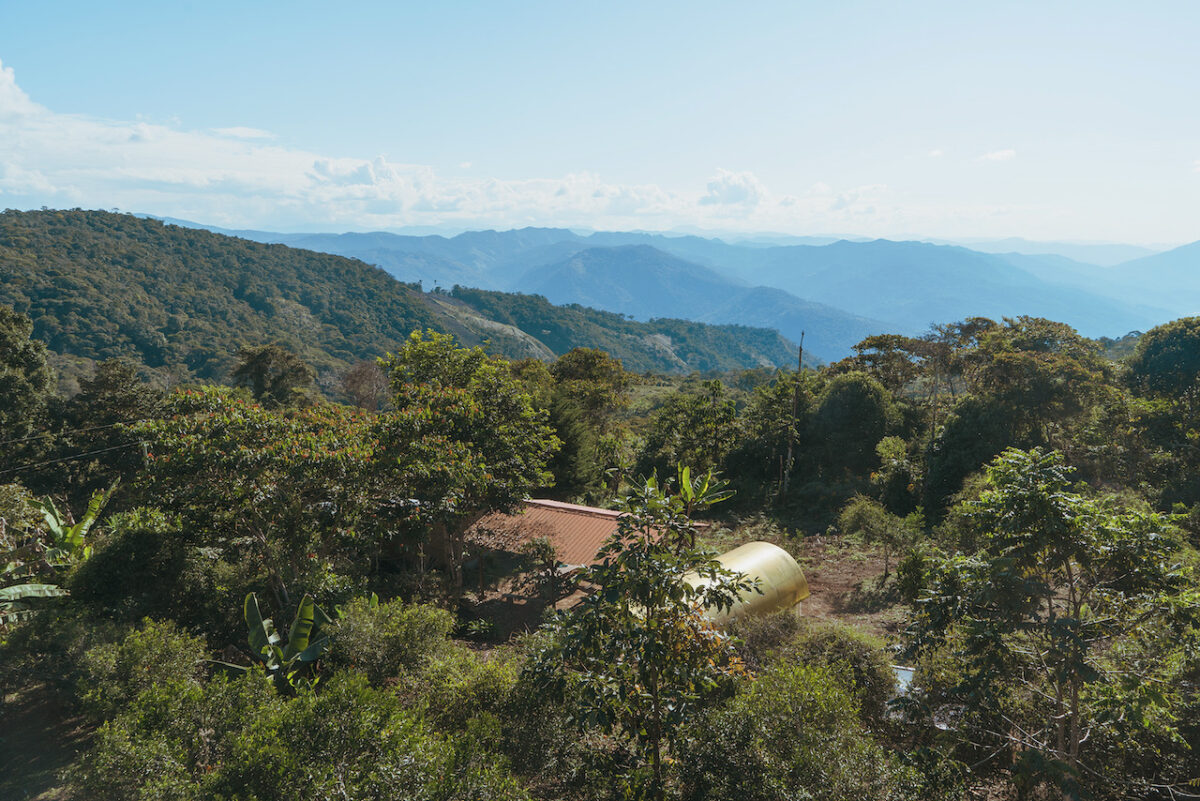
Planning the long term future of the region
In addition to her work, Nassia also leads the “Development Project” of the village her grandfather created. This project includes maintaining roads and creating schools, tasks where the government should be responsible for, yet is taken into the locals’ own hands without pay. With the long term development of the village in mind, she recently helped build a 3 story lodge on the farm property.
“This lodge was built with the help of the local youths. By being inclusive, I wanted to create a better community and I hoped that those who became interested in working for coffee would join our team.”
In Bolivia, making a living from coffee production can be difficult and it is common for local youths to go to the city to work. To create a system where youths can be employed throughout the year, Nassia and her team have started to also grow citruses such as oranges.
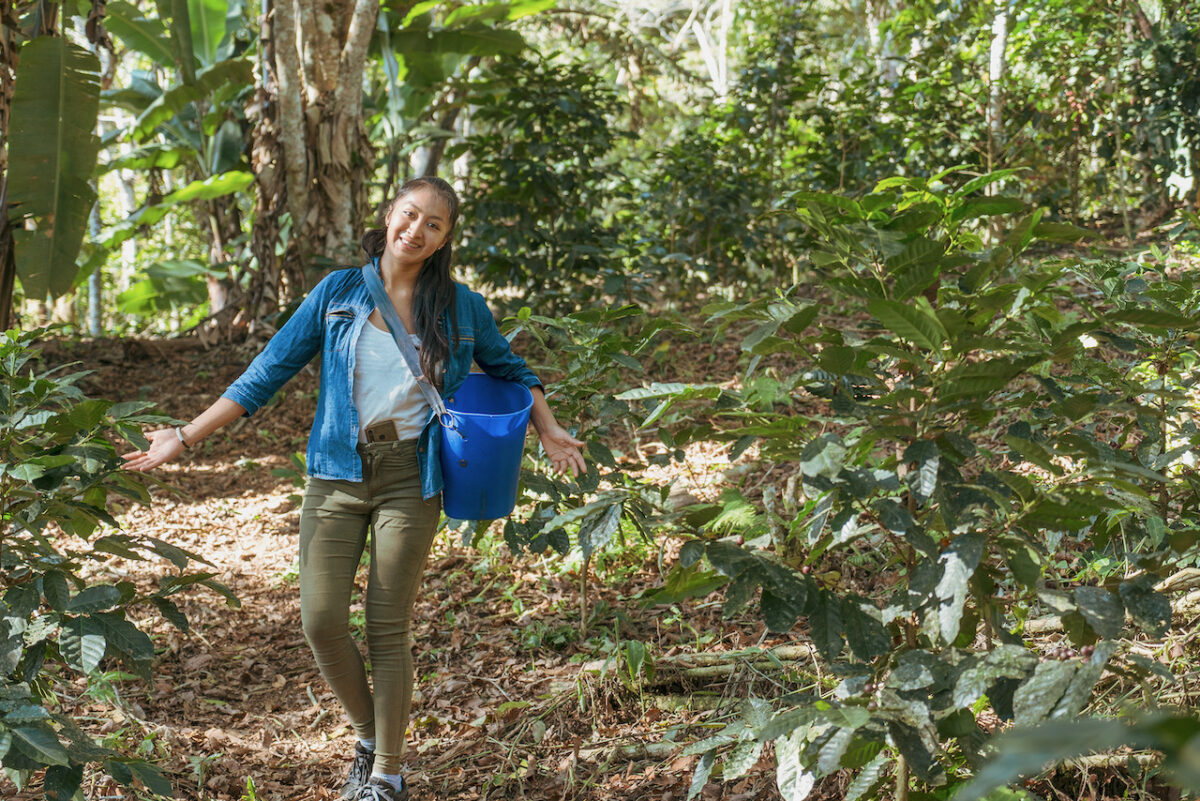
“I find myself being completely absorbed by the fact that I am doing what I love, with my family and the local people whom I love. My goal is to create a brand for our regional specialty coffee by continuing to value teamwork with the locals and by increasing coffee quality.
Each person has a role to play and I am only able to move forward when everyone works together. Everyone on this farm has dedicated their time and lives into each task in order to create better, delicious coffee. I want to continue working in a way so that their dedication is understood by those that drink the coffee. Despite being a family-run business, Pedro Rodriguez from Agricafe has many world class roasters as clients; he is someone that gives me hope.”
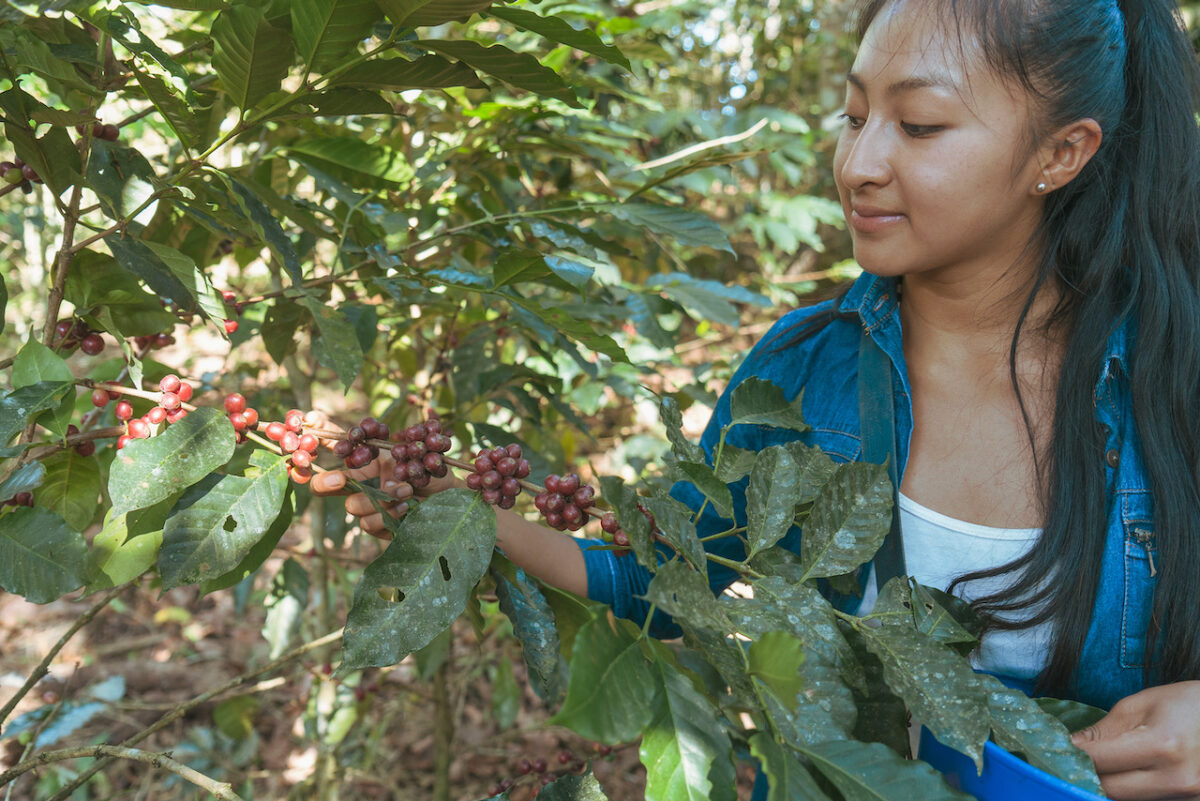
Instead of self-interest or immediate profit, something that Nassia’s grandfather, mother and herself have in common is the fact that they take action for the long term future of the region.
What is required to create a sustainable world? “For the farmers to view the coffee they grow as not only a way to earn money, but also to see coffee as life”, answered Nassia. Perhaps, through Nassia’s eyes, she was able to see through what is truly important even before the world started moving towards sustainability.
